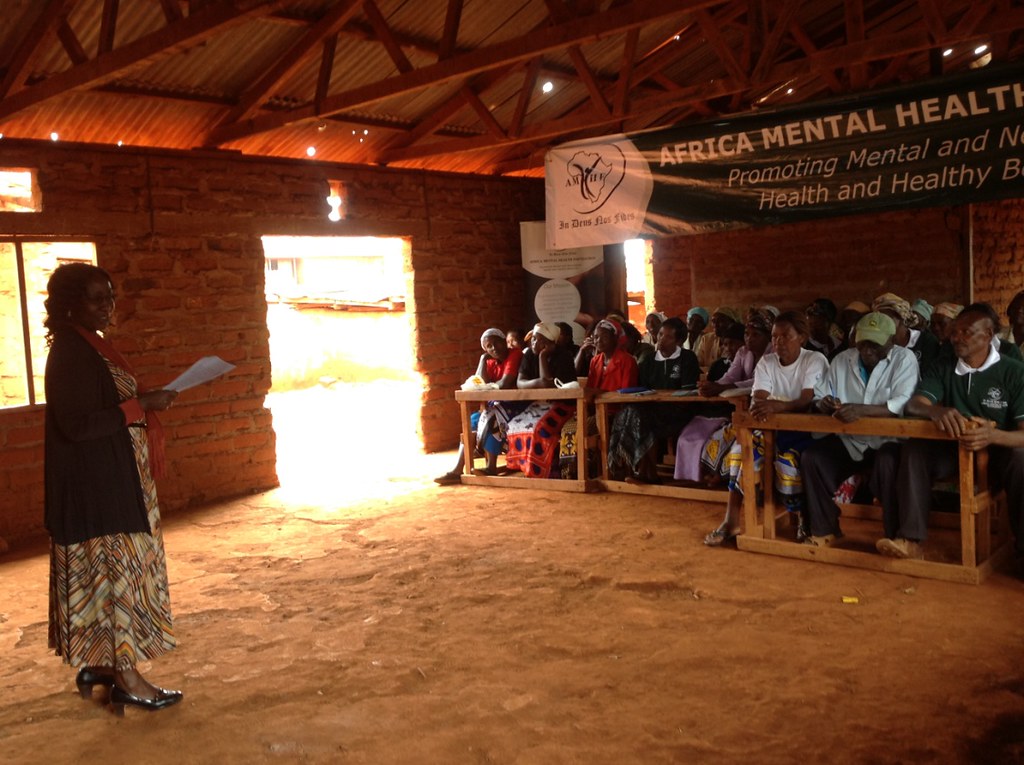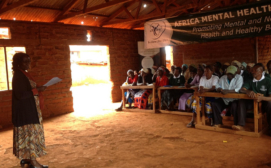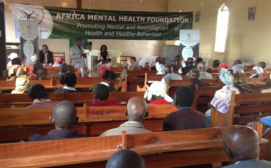
Conducting community psychoeducation in schools (© AMHF)
Project Lead(s): Victoria Mutiso
Innovative model enlists African traditional healers, faith healers, and community health workers to help detect mental illness; in pilot project, about 1,600 people are referred to clinics; 500 are diagnosed with mental illness.
A major new investment will enable the Africa Mental Health Foundation (AMHF) to build its referral networks and expand its integration of mental health into existing public and community health services by training formal (nurses, clinical officers) and informal (traditional healers, faith healers) healthcare providers.
In Kenya, with a high prevalence of mental disorders among its 40 million citizens, there are only about 500 practicing psychiatrists and psychologists. This shortage of professionals, combined with limited drug supplies, government funding and stigma, leaves most of those living with mental illness unable to access much needed diagnosis and treatment.
The AMHF approach breaks down barriers between the formal and informal sectors, encouraging dialogue and training to increase synergy and communication.
Viability of the model was demonstrated in a proof of concept project, funded by Canada’s International Development Research Centre, during which the referrals of people suspected of having mental illness rose from nil to 1,593, of which almost one-third (494, or 31%) were clinically diagnosed with a mental health disorder by trained healthcare staff.
The new funding will help AMHF scale up from two to 20 facilities in Makueni County, located between Nairobi and Mombasa. It will engage and educate more than 160 community health workers, traditional and faith healers and anticipates identifying 6,000 more suspected cases of mental illness. If the same rate of success prevails as in the pilot program, almost 2,000 people will be diagnosed within the year.Project goals also include building awareness and combating the stigma of mental illness within rural communities and, long-term, a community mental health care model that can be scaled up and implemented throughout Kenya.
Scale-up funding includes CDN$660,000 from the Government of Makueni County – a rare commitment from an African government body to a mental health program. The effort is also supported by New York-based Columbia University’s Global Mental Health Program.


